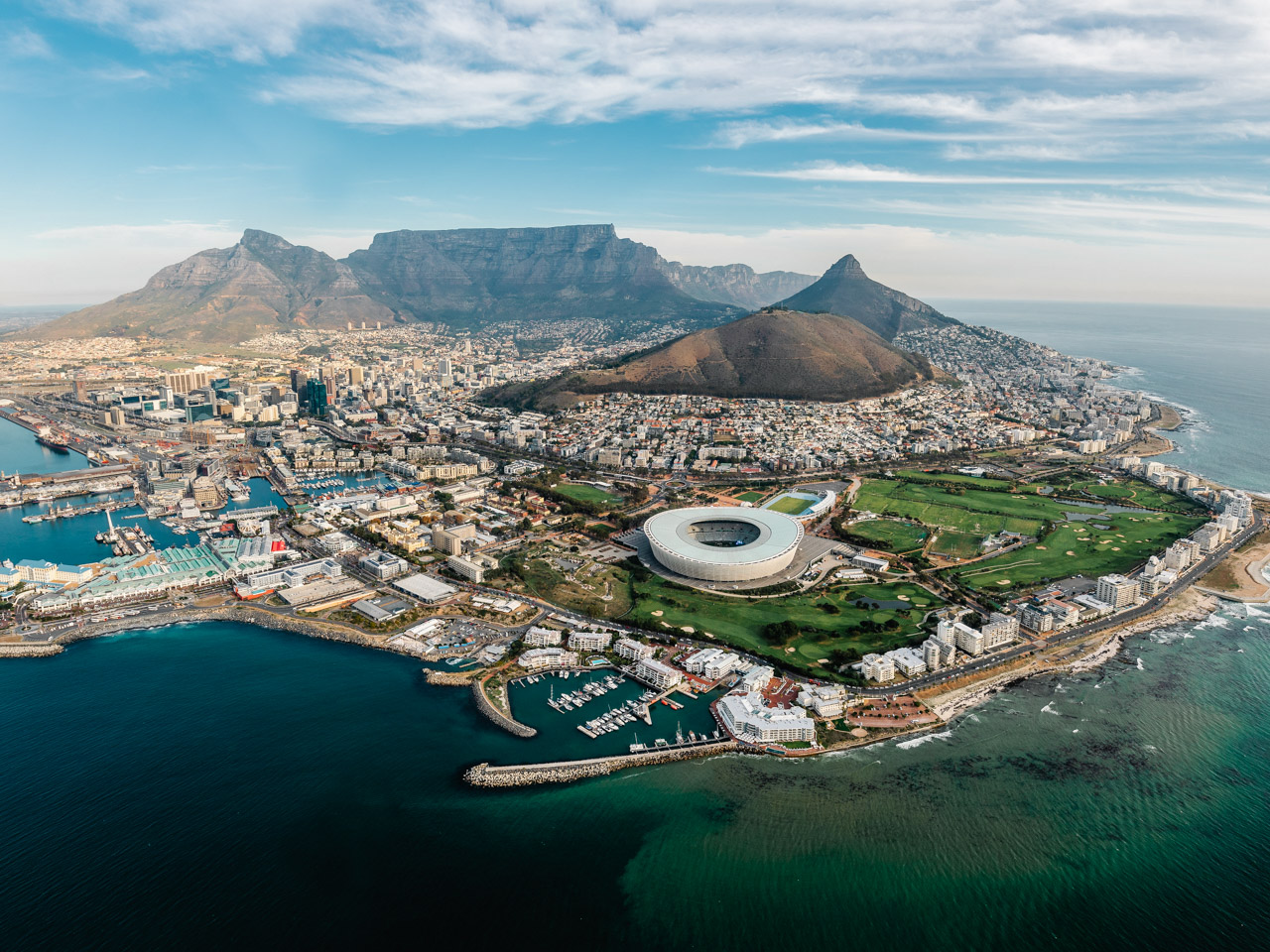2024 Special Mention — Cape Town
Cape Town is recognised for adeptly managing climate change repercussions and other disasters, addressing their implications for daily life and future sustainability.1
 The City of Cape Town with its waterfront context and the Table Mountain in the background © africa4life/123RF
The City of Cape Town with its waterfront context and the Table Mountain in the background © africa4life/123RF
CAPE TOWN is recognised for adeptly managing climate change repercussions and other disasters, addressing their implications for daily life and future sustainability. Overcoming the challenges of a severe water crisis from 2017 to 2018, and the COVID-19 pandemic, Cape Town successfully adopted an agile governance approach to swiftly build and deliver rapid, effective systemic responses to extreme events.
Agile governance
In 2018, Cape Town faced a severe water crisis with dams reaching critically low levels, prompting strict water usage limits to 50 litres per day. The government reacted swiftly through quick planning and budgeting, leading to the implementation of the Water Augmentation Plan to diversify and boost water supply through desalination, groundwater extraction, and water re-use. Learning from the crisis, Cape Town has turned emergency measures into permanent solutions, exemplified by the Faure New Water Scheme plant. Designed with insights from an emergency demonstration plant during the 2018 crisis, these initiatives aim to ensure long-term water security for the city.
Data-driven decision making and implementation
Cape Town’s robust data ecosystems have been pivotal in facilitating swift decision making during crises, particularly in addressing the needs of vulnerable residents. Adopting a data-driven approach, the city developed the Social Vulnerability Index and Economic Nodes Index to identify vulnerable citizens during water crises. These indices guided targeted responses, including strategic water network shutdowns and the siting of water collection distribution points.
During the COVID-19 pandemic, the Covid Vulnerability Viewer identified infection risks, guiding public health interventions, and supporting vulnerable areas economically and socially. Additionally, in its Day Zero campaign, Cape Town utilised comprehensive data infrastructure, such as the open and real-time ‘Water Dashboard’, to effectively communicate water scarcity complexities, increasing public awareness and promoting responsible water usage. The multi-faceted campaign has effectively mobilised citizens’ response to implement water conservation strategies swiftly, contributed to a commendable reduction in water consumption by 57 percent during the crisis, and managed demand to successfully avert ‘Day Zero’ .
Futureproofing the city
Cape Town’s Integrated Development Plan 2022-2027 prioritises resilience through long-term strategies, developed collaboratively with stakeholders. This strategic plan guides future development, emphasising strategic investments in urban systems and public infrastructure for economic growth and enhanced resilience with clear targets that are reviewed annually and published for accountability. For example, the New Water Programme aims to increase water supply by 300 million litres daily, diversifying sources of water and improving infrastructure for the long term.
The city is also pursuing Independent Power Producers for energy diversification to increase the reliability of electricity supply. These strategies demonstrate Cape Town’s commitment to sustainable development and resilience so as to build greater public confidence in government efforts. Projects like the Victoria & Alfred Waterfront, an iconic 123-hectare mixed-use precinct which supports local entrepreneurship and drives positive social and environmental change, further demonstrated the city’s commitment towards fulfilling the needs of the community.
While Cape Town’s efforts to become more resilient to climate change are commendable, ongoing challenges demand continuous improvements in public infrastructure and urban systems to prevent the occurrence of future severe crises similar to the previous water crisis. Other vital challenges also need to be addressed, such as tackling social housing shortages, creating jobs, managing the growth of informal settlements, and enhancing their living conditions. Sustained efforts to meet citizens’ basic needs can improve lives, cultivate hope and community spirit, enabling Cape Town to reach its goal of being the City of Hope. O
Commemorative video
Case studies
| 01 | Green Point Park Revitalisation of a neglected space into a vibrant urban oasis, showcasing biodiversity, sustainable water management, and fostering community growth. |
| 02 | Water Augmentation Plan A disaster plan for Cape Town’s 2018 water crisis exemplifies urban resilience through data-driven strategies for effective resource management and targeted response. |
-
All information correct as of 2023. ↩

